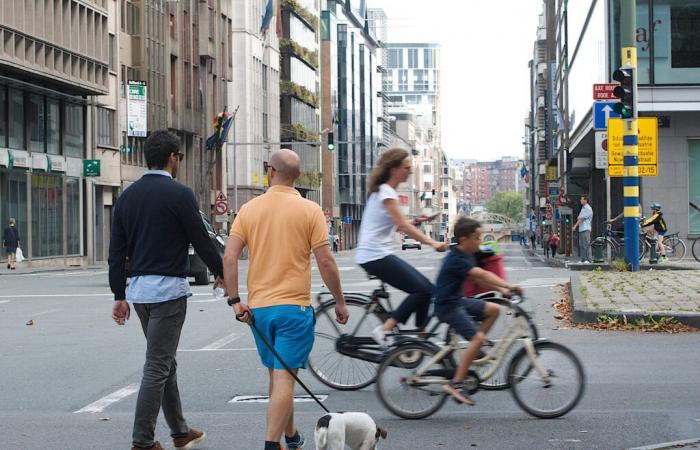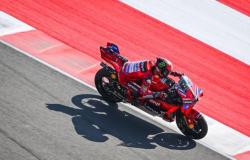Car-free day is useful and enjoyable. ©Belga Image
Children playing in the streets, terraces full of people, bikes and scooters zigzagging freely from one lane to another, and above all: not a single roar of a car. While some people revel in this unusual calm, other driving enthusiasts are grinding their teeth. However, for 20 years, this day has been as useful as it is enjoyable.
Breathe
Noise pollution, air pollution, and for some, visual pollution: whether we like them or not, our cars are not all good. All of this has a direct impact on our mental and physical health. Jumping at a pedestrian crossing because a wild motorbike is backfiring at full speed may not seem like much. But the long-term consequences are serious. For example, chronic exposure to noise is estimated to cause 48,000 cases of cardiovascular disease in Europe each year.
So, a day without horns is good for our health and for our zenitude. And our lungs also thank us for it. Every year, this day is an opportunity to objectify the impact of cars on air quality. The 2023 edition observed a decrease in nitrogen monoxide and dioxide concentrations of 95 to 77% compared to an average Sunday. Not bad…
Political lever
These data are strong arguments for introducing political measures to reduce cars. Difficult to implement, they are often questioned. This is particularly the case for the LEZ zones in Brussels (low emission zones), which provide for the banning of the most polluting vehicles from 1 January. But on the eve of the local elections, some parties have decided that it might be necessary to wait a little longer… No comment on this coincidence of the calendar.
Money, money, money…
So far, not a single shadow on the picture of the day without cars: bikes that are not afraid of cars, birds that sing… But it must be admitted that this represents a cost of 776,000 euros for the State, ouch. A sum that covers: the closure of the roads (300,000 euros), the free STIB (446,000 euros), and finally the supervision provided by the municipalities, i.e. security… (30,000 euros). And that’s without counting the administrative costs for managing requests for exemptions to borrow your car despite everything.
The environmentalists had also proposed to multiply the car-free day, by coupling it with festivals, such as that of Iris. But precisely, the cost of this initiative has cooled more than one, distancing this project from political discussions.
But then, is it an economic disaster? No need to worry, because the Horeca sector is rubbing its hands. While it is impossible to put a precise figure on these exceptional revenues, the president of the Brussels Horeca Federation assures us that it is particularly profitable for the sector, and “it highlights Brussels and energizes its neighborhoods,” she says.
Would you like another slice?
Even though the proportion of cyclists increases every year, many people find this day an opportunity to dust off their bikes, roller skates, or even their unicycles for the more adventurous. A real reminder: ultimately, it’s rather pleasant to get around differently, it’s even a way to rediscover your neighborhood, or even your city.
So this is an opportunity to take up or resume a good habit, for our own health, and that of others. And then, in the future, cities will probably be more the domain of pedestrians than cars. The center of Ghent, for example, is completely car-free. So get ready for a real leap into the future this Sunday!
A day that was never to be repeated
It is far from our ecological considerations that the car-free day was born. At the time, it was above all a question of economy! Its origins date back to 1973, thousands of kilometers from our flat country, to arrive at the heart of a political-military conflict: the Suez crisis.
In short, Egypt nationalizes the famous Suez Canal, Israel, France and the United Kingdom get involved. Except that this canal is the main route for oil from the Middle East to Europe. Crash, less oil transported, price increases… it’s panic. Like other European countries, Belgium then organizes a car-free day. The goal: to save fuel and raise awareness of other means of transport.






